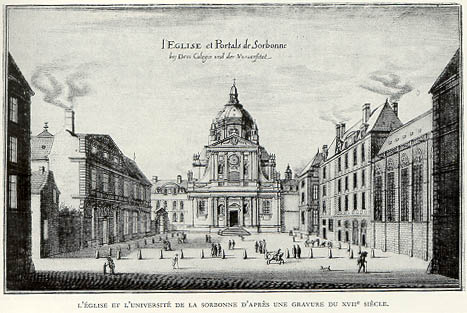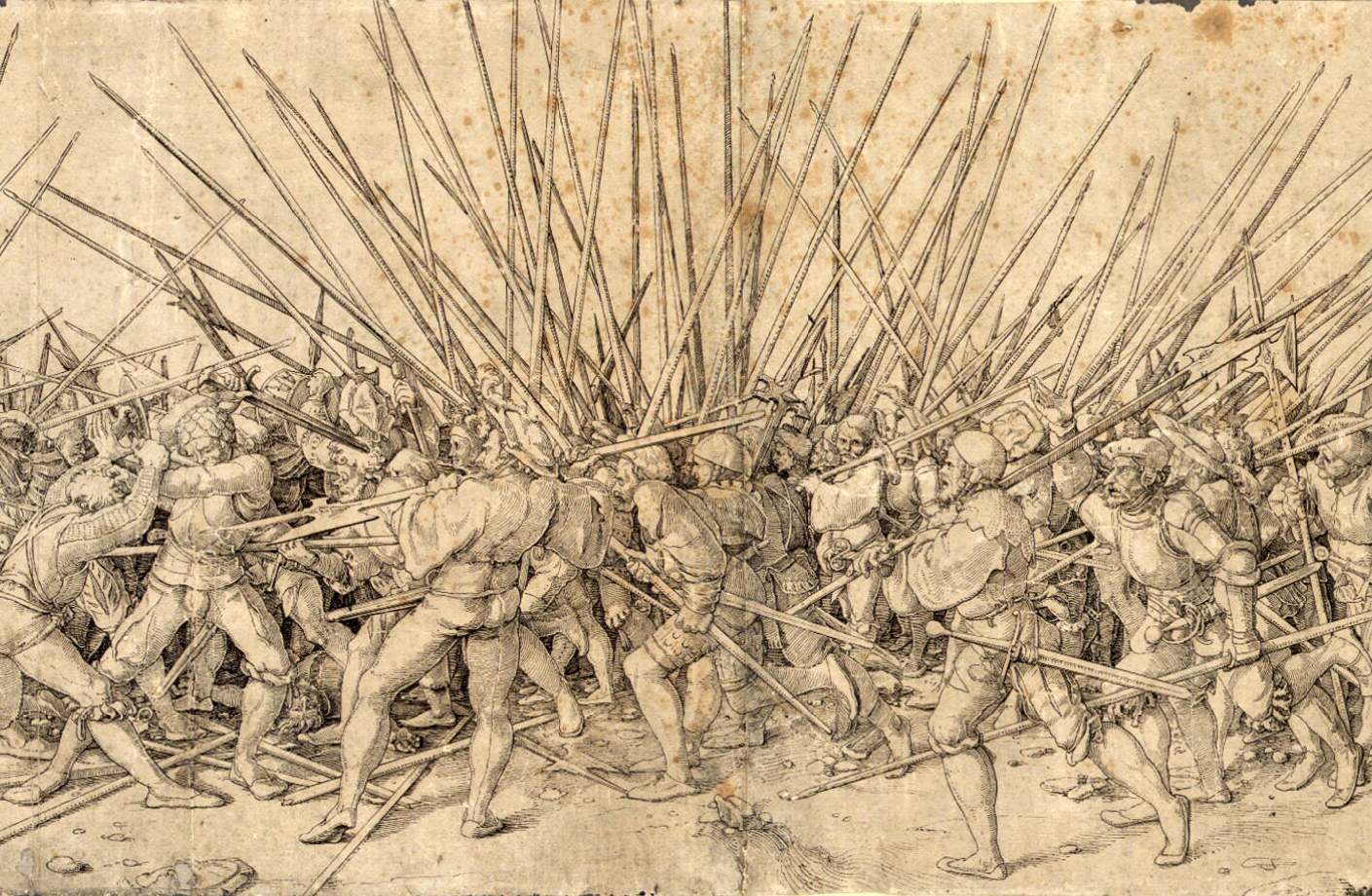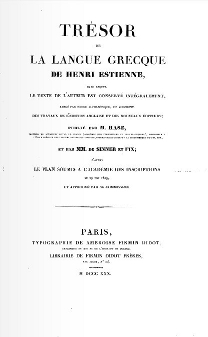|
Bonaventure Des Périers
Bonaventure des Périers (1544) was a French writer. Biography He was born of a noble family at Arnay-le-duc in Burgundy at the end of the fifteenth century. The circumstances of his education are sketchy, but it is known that he was attached to various noble houses in the capacity of tutor. In 1533 or 1534 Des Périers visited Lyon, then the most enlightened town of France, and a refuge for many liberal scholars who might elsewhere have had to suffer for their opinions. He gave some assistance to Robert Olivetan and Lefèvre d'Etaples in the preparation of the vernacular version of the Old Testament, and to Etienne Dolet in the ''Commentarii linguae latinae''. In 1536 he put himself under the protection of Marguerite de Navarre, queen of Navarre, who made him her '' valet de chambre''. He acted as the queen's secretary, and transcribed the ''Heptaméron'' for her. It is probable that his duties extended beyond those of a mere copyist, and some writers have gone so far ... [...More Info...] [...Related Items...] OR: [Wikipedia] [Google] [Baidu] |
Arnay-le-duc
Arnay-le-Duc () is a Communes of France, commune in the Côte-d'Or Departments of France, department in the Bourgogne-Franche-Comté region of eastern France. Geography Arnay-le-Duc is located some 25 km north-west of Beaune and some 35 km south-east of Saulieu. Access to the commune is by the D906 road from Lacanche in the south-east passing through the town and continuing north-west. The D981 comes from the end of the A38 autoroute in the north-east and passes through the town continuing to the south-west where it becomes Route nationale, National Highway N81. These two roads were originally Gallo-Roman roads linking Autun and Alesia (city), Alesia, then in the Middle Ages linking the Rhone corridor to fairs in Champagne. The D17 comes from Marcheseuil in the west passing through the town and continuing to Bligny-sur-Ouche in the east. The D117A goes north from the town to Allerey. The D36 branches off the D981 south of the town and goes to Maligny, Côte-d'Or, Maligny ... [...More Info...] [...Related Items...] OR: [Wikipedia] [Google] [Baidu] |
Collège De Sorbonne
The College of Sorbonne () was a theological college of the University of Paris, founded in 1253 (confirmed in 1257) by Robert de Sorbon (1201–1274), after whom it was named. The Sorbonne was disestablished by decree of 5 April 1792, after the French Revolution, along with the other Paris colleges. It was restored in 1808, then closed finally in 1882. In recent times the name "Sorbonne" came to refer to the group of liberal arts faculties of the University of Paris, in contrast to the vocational faculties of law and medicine. "Sorbonne" is also used to refer to the main building of the University of Paris in the 5th arrondissement of Paris, which houses several faculties created when the University was divided into thirteen autonomous universities in 1970. Overview Robert de Sorbon was the son of peasants from the village of Sorbon in the Ardennes, who became a master of theology, a canon of the Cathedral of Notre Dame de Paris, and the confessor and chaplain of King ... [...More Info...] [...Related Items...] OR: [Wikipedia] [Google] [Baidu] |
1544 Deaths
__NOTOC__ Events January–March * January 4 – In India, Maldeo Rathore, King of Marwar (now part of the state of Rajasthan) is tricked by counterintelligence spread by Mughal Emperor and Afghan Shah Sher Shah Suri into departing from Jodhpur. The Battle of Sammel begins shortly afterward and is won by the Afghan and Mughal armies. * January 13 – At Västerås, the estates of Sweden swear loyalty to King Gustav Vasa and to his heirs, ending the traditional electoral monarchy in Sweden. Gustav subsequently signs an alliance with the Kingdom of France. * January 24 – During a solar eclipse visible over the Netherlands, Dutch mathematician and designer Gemma Frisius makes the first recorded use of a camera obscura and uses it to observe the event without directly looking at the Sun. Frisius writes about the event the next year and illustrates it in his book ''De Radio Astronomica et Geometrica'' (''Regarding rays of light in astronomy and geometry''). ... [...More Info...] [...Related Items...] OR: [Wikipedia] [Google] [Baidu] |
1500s Births
Fifteen or 15 may refer to: *15 (number) *one of the years 15 BC, AD 15, 1915, 2015 Music *Fifteen (band), a punk rock band Albums * ''15'' (Buckcherry album), 2005 * ''15'' (Ani Lorak album), 2007 * ''15'' (Phatfish album), 2008 * ''15'' (Tuki album), 2025 * ''15'' (mixtape), a 2018 mixtape by Bhad Bhabie * ''Fifteen'' (Green River Ordinance album), 2016 * ''Fifteen'' (The Wailin' Jennys album), 2017 * ''Fifteen'', a 2012 album by Colin James Songs * "Fifteen" (song), a 2008 song by Taylor Swift *"Fifteen", a song by Harry Belafonte from the album '' Love Is a Gentle Thing'' *"15", a song by Rilo Kiley from the album ''Under the Blacklight'' *"15", a song by Marilyn Manson from the album ''The High End of Low'' Other media * ''15'' (film), a 2003 Singaporean film * ''Fifteen'' (TV series), international release name of ''Hillside'', a Canadian-American teen drama * "Fifteen" (''Runaways''), an episode of ''Runaways'' *Fifteen (novel), a 1956 juvenile fict ... [...More Info...] [...Related Items...] OR: [Wikipedia] [Google] [Baidu] |
French Historical Novelists
French may refer to: * Something of, from, or related to France ** French language, which originated in France ** French people, a nation and ethnic group ** French cuisine, cooking traditions and practices Arts and media * The French (band), a British rock band * "French" (episode), a live-action episode of ''The Super Mario Bros. Super Show!'' * ''Française'' (film), a 2008 film * French Stewart (born 1964), American actor Other uses * French (surname), a surname (including a list of people with the name) * French (tunic), a type of military jacket or tunic * French's, an American brand of mustard condiment * French (catheter scale), a unit of measurement * French Defence, a chess opening * French kiss, a type of kiss See also * France (other) * Franch, a surname * French Revolution (other) * French River (other), several rivers and other places * Frenching (other) * Justice French (other) Justice French may refer to: * C. ... [...More Info...] [...Related Items...] OR: [Wikipedia] [Google] [Baidu] |
Adolphe Chenevière
Adolphe Chenevière, D.ès.L. (1855–1917) was a fin de siècle Swiss novelist, short story writer, and literary scholar. Life Adolphe Chenevière was born to Arthur Chenevière (a state counsellor for the Canton (country subdivision), canton of Geneva) and Susanne Firmine (née Munier). He earned a doctorate from the University of Paris; his thesis, ''Bonaventure Des Périers, sa vie, sa poésie'', examined the life and poetic works of the 16th-century author Bonaventure des Périers. Plon (publisher), E. Plon published the thesis in 1885. Having completed his studies, Chenevière married Blanche Ernestine Augustine Lugol. In 1886, Plon published ''De Plutarchi Familiaribus'', Chenevière's Latin dissertation on Plutarch. Meanwhile, Chenevière and his wife had their first son, Jacques Chenevière, who was born in Paris. In 1888, their second son, André Alfred, was born, but he did not survive infancy; Chenevière's mother, too, died that year. From the late 1880s through th ... [...More Info...] [...Related Items...] OR: [Wikipedia] [Google] [Baidu] |
Jacques Peletier
Jacques Pelletier du Mans, also spelled Peletier (, 25 July 1517 – 17 July 1582) was a humanist, poet and mathematician of the French Renaissance. Life Born in Le Mans into a bourgeois family, he studied at the Collège de Navarre in Paris, where his brother Jean was a professor of mathematics and philosophy. He subsequently studied law and medicine, frequented the literary circle around Marguerite de Navarre and from 1541 to 1543 he was secretary to René du Bellay. In 1541 he published the first French translation of Horace's and during this period he also published numerous scientific and mathematical treatises. In 1547 he produced a funeral oration for Henry VIII of England and published his first poems (), which included translations from the first two cantos of Homer's ''Odyssey'' and the first book of Virgil's ''Georgics'', twelve Petrarchian sonnets, three Horacian odes and a Martial-like epigram; this poetry collection also included the first published poems of ... [...More Info...] [...Related Items...] OR: [Wikipedia] [Google] [Baidu] |
Nicholas Denisot
Nicholas is a male name, the Anglophone version of an ancient Greek name in use since antiquity, and cognate with the modern Greek , . It originally derived from a combination of two Greek words meaning 'victory' and 'people'. In turn, the name means "victory of the people." The name has been widely used in countries with significant Christian populations, owing in part to the veneration of Saint Nicholas, which became increasingly prominent in Western Europe from the 11th century. Revered as a saint in many Christian denominations, the Eastern Orthodox, Catholic, and Anglican Churches all celebrate Saint Nicholas Day on December 6. In maritime regions throughout Europe, the name and its derivatives have been especially popular, as St Nicholas is considered the protector saint of seafarers. This remains particularly so in Greece, where St Nicholas is the patron saint of the Hellenic Navy. Origins The name derives from the . It is understood to mean 'victory of the people', bei ... [...More Info...] [...Related Items...] OR: [Wikipedia] [Google] [Baidu] |
Plato
Plato ( ; Greek language, Greek: , ; born BC, died 348/347 BC) was an ancient Greek philosopher of the Classical Greece, Classical period who is considered a foundational thinker in Western philosophy and an innovator of the written dialogue and dialectic forms. He influenced all the major areas of theoretical philosophy and practical philosophy, and was the founder of the Platonic Academy, a philosophical school in History of Athens, Athens where Plato taught the doctrines that would later become known as Platonism. Plato's most famous contribution is the theory of forms, theory of forms (or ideas), which aims to solve what is now known as the problem of universals. He was influenced by the pre-Socratic thinkers Pythagoras, Heraclitus, and Parmenides, although much of what is known about them is derived from Plato himself. Along with his teacher Socrates, and his student Aristotle, Plato is a central figure in the history of Western philosophy. Plato's complete ... [...More Info...] [...Related Items...] OR: [Wikipedia] [Google] [Baidu] |
Paris, France
Paris () is the Capital city, capital and List of communes in France with over 20,000 inhabitants, largest city of France. With an estimated population of 2,048,472 residents in January 2025 in an area of more than , Paris is the List of cities in the European Union by population within city limits, fourth-most populous city in the European Union and the List of cities proper by population density, 30th most densely populated city in the world in 2022. Since the 17th century, Paris has been one of the world's major centres of finance, diplomacy, commerce, culture, Fashion capital, fashion, and gastronomy. Because of its leading role in the French art, arts and Science and technology in France, sciences and its early adoption of extensive street lighting, Paris became known as the City of Light in the 19th century. The City of Paris is the centre of the Île-de-France region, or Paris Region, with an official estimated population of 12,271,794 inhabitants in January 2023, or ... [...More Info...] [...Related Items...] OR: [Wikipedia] [Google] [Baidu] |
Étienne Pasquier
Étienne Pasquier (7 June 152930 August 30 1615) was a French lawyer and man of letters. By his own account he was born in Paris on 7 June 1529, but according to others he was born in 1528. He was called to the Paris bar in 1549. In 1558 he became very ill by eating poisonous mushrooms and took two years to recover. This compelled him to occupy himself with literary work and in 1560 he published the first book of his ''Recherches de la France''. In 1565, when he was thirty-seven he became famous after giving a speech in which he pleaded the cause of the University of Paris against the Jesuits and won it. Meanwhile, he pursued the ''Recherches'' steadily and published other miscellaneous work from time to time. His literary and his legal occupations coincided in a curious fashion at the ' of Poitiers in 1579. These Grands Jours (an institution which fell into desuetude at the end of the 17th century, with bad effects on the social and political welfare of the French provinces) w ... [...More Info...] [...Related Items...] OR: [Wikipedia] [Google] [Baidu] |
Henri Estienne
Henri Estienne ( , ; 1528 or 15311598), also known as Henricus Stephanus ( ), was a French printer and classical scholar. He was the eldest son of Robert Estienne. He was instructed in Latin, Greek, and Hebrew by his father and would eventually take over the Estienne printing firm which his father owned in 1559 when his father died. His most well-known work was the ''Thesaurus graecae linguae'', which was printed in five volumes. The basis of Greek lexicology, no thesaurus would rival that of Estienne's for three hundred years. Among his many publications of Greek authors, his publications of Plato are the source of Stephanus pagination, which is still used to refer to Plato's works. Estienne was also responsible for the first printed Latin translation of the works of Sextus Empiricus in 1562, which scholars credit for the diffusion of Pyrrhonian skepticism in early modern Europe and its adoption by highly influential skeptical philosophers such as Michel de Montaigne. Estie ... [...More Info...] [...Related Items...] OR: [Wikipedia] [Google] [Baidu] |





